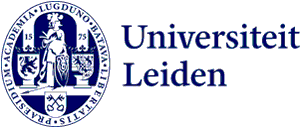
From Sterre to Mick: A conversation about the role of assessor
With the academic year coming to an end, the assessor role at the Faculty of Governance and Global Affairs (FGGA) is also transitioning. After three intensive years, Sterre Burmeister (25) is handing over the role to Mick de Kruijff (22), a fourth-year Public Administration student. We spoke with them about their experiences, challenges, and expectations.
Why did you choose to become an assessor?
Sterre: ‘During my studies, I worked as a student ambassador and student assistant. Part of my time at university was during the COVID period, when students were particularly eager to find ways to get involved. The university offered a really welcoming environment for that. When I became active in my study association, I heard about the assessor role. It felt like a fantastic opportunity to contribute to the university while also growing personally.’
Mick: ‘I was already familiar with the work Sterre was doing and was inspired by her dedication and achievements. She showed how much impact you can have. When I saw the vacancy, I immediately thought: I have to go for this, it’s exactly my kind of challenge. I really want to contribute and make a difference for both students and the faculty.’
'You can’t solve everything on your own, but together you can get a lot further.’
What do you consider your greatest success, and what were the biggest challenges?
Sterre: ‘My greatest success was strengthening the collaboration between student associations such as Fortuna, Custodia, and the B.I.L. We really managed to create a sense of community, with joint activities like dinners and regular meetings. We also celebrated the Lasso Lustrum last year. It was inspiring to meet different generations of assessors and have the chance to put them in the spotlight.
One challenge was definitely balancing my role as a student with that of a board member. With certain decisions—such as the relocation of student associations—I had to explain choices that weren’t always popular. That was sometimes difficult.’
Mick: ‘That definitely resonates with my current board role at B.I.L. change can provoke resistance, and I think that’s one of the toughest aspects of this position. Still, I believe that collaboration is key. You can’t solve everything on your own, but together you can get a lot further.’
'I hope we’ll seek each other out more often and learn from one another.'
Mick, what are your plans as the new assessor?
Mick: ‘I mainly want to focus on connection—within the faculty, and between students and staff in both The Hague and Leiden. During my application interview, it became clear that community building is a key priority. I hope we’ll seek each other out more often and learn from one another. This was also highlighted in the ITK report, so I feel supported in this ambition.’
Sterre: ‘That’s a great aim. Connection really is essential, but do keep in mind that it takes time. Try to take small steps and don’t be afraid to set priorities. Trying to tackle everything at once rarely works.’
Sterre, what advice would you give Mick?
Sterre: ‘My most important tip is: stay true to yourself and always think from the perspective of the students. LUC students, for example, have very different priorities from Public Administration students. Also, try to meet as many people as possible, both within and outside the faculty. That really helps with collaboration. And look after yourself, too. There are an incredible number of meetings, so be critical of your schedule and set clear boundaries.’
How has being an assessor changed you personally?
Sterre: ‘It’s taught me so much. My social skills have improved, I’ve built a broader network, and my sense of responsibility has grown. What I value most is how seriously I’ve been taken within the faculty. That sense of recognition is really special.’
Mick: ‘I’m of course only at the beginning, but I can already see how valuable this experience is. It gives me insight into the academic world, which fits well with my ambition to pursue a PhD. I think this year will bring a lot, both professionally and personally.’
'You grow as a person, learn to collaborate, and contribute to something bigger'
What would you say to others who are unsure about applying for the assessor role?
Sterre: ‘It’s an intensive role, but it’s more than worth it. You grow as a person, learn to collaborate, and contribute to something bigger. For me, it was a unique opportunity that I’m still grateful for.’
Mick: ‘I completely agree. It’s a remarkable chance to develop yourself and do something meaningful for the faculty. I’m really looking forward to getting started and hopefully achieving some great results.’
